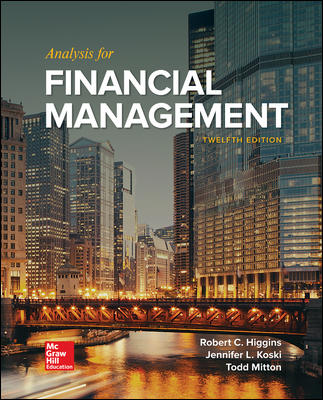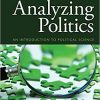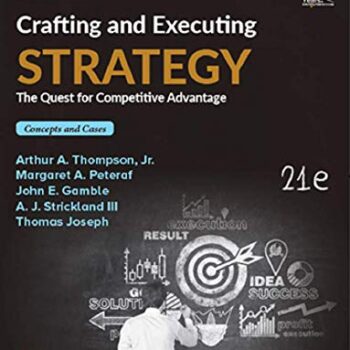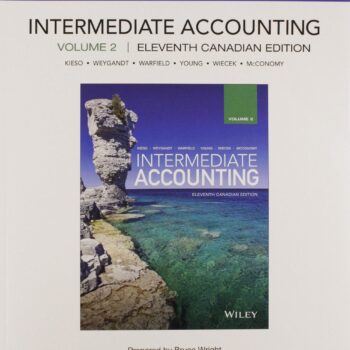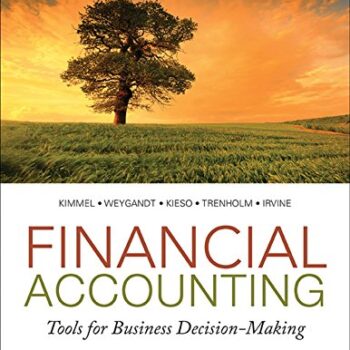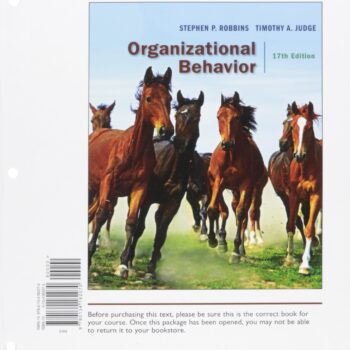Here’s a brief description of the Test Bank for Analysis for Financial Management, 12th Edition by Robert Higgins, suitable for students and people who are into financial management.
Contents of Analysis for Financial Management Test
This test bank deals with topics that relate to how to evaluate and manage the financial position of a firm. Mentioned are financial ratios and leverage analyses, performance measuring and appraisal, as well as projecting the performance of the firm. These concepts are of great significance to anybody wishing to optimally operate within the ever-competitive environment in which finance is.
What You’ll Find Inside
The test bank for the 12th edition is designed to address the challenge posed by understanding the difficulty associated with the concepts of financial management. Some of the important sections are:
- Understanding Financial Statements: Analysis of the assets, equity, and earnings to assess the factors that determine a company’s upkeep and growth.
- Evaluation of Performance: Understand and apply tools for assessing performance such as return on equity and net profit margin and determine the business position.
- Financial Performance Planning: Appreciate and apply concepts of financial prediction and expansion control and manage cycles for future success.
- Financing Instruments and Investments: Assess across financial tools and markets, mechanisms of cash-flow discounting, and the scope of risk to make sound decisions.
Advantages of Utilizing The Test Bank
This exam bank is ideal for learners and practitioners who want to polish up their examine-style questions which are synonymous with practicing finance. This weapon will enable you to:
Boost grasp of financial context and language, especially about acquisition, corporate restructuring, and even investment evaluation.
- Simulate Real-World Challenges: Every question is practical concerning making decisions that require a financial aspect.
- Refine analytical skills: Attempt numerous practice problems that allow calculations and analysis similar to those experienced in practice.
Who Should Use This Test Bank?
This exam bank is good for business students who are taking finance courses and financial managers who are not heavily equipped with financial analytical skills. It provides them an opportunity to assess their skills and knowledge of subjects such as financial planning, risk management, investment appraisal, and so forth.
Conclusion
Higgins Robert’s Analysis for Financial Management has a 12th Edition Test Bank which takes a practical and structured perspective of the subject making it easy for one to learn the fundamental skills of financial management. If you prepare with this test bank, you can sharpen your skills in reading financial data predicting performance, and making decisions, which are very important for a business to thrive. It is also a great source for strengthening comprehension and for practicing or preparing for examinations before entering the financial sphere.
Test Bank For Analysis for Financial Management 12Th Edition BY Robert Higgins
Chapter 02 Test Bank
1. An inventory turnover ratio of 10 means that, on average, items are held in inventory for 10 days.
FALSE
Accessibility: Keyboard Navigation
Difficulty: 1 Easy
Gradable: automatic
2. All else equal, an increase in a company’s asset turnover will decrease its ROE.
FALSE
Accessibility: Keyboard Navigation
Difficulty: 1 Easy
Gradable: automatic
3. A company’s return on assets will always equal or exceed its profit margin.
FALSE
Accessibility: Keyboard Navigation
Difficulty: 2 Medium
Gradable: automatic
4. A company’s price-to-earnings ratio is always equal to one minus its earnings yield.
FALSE
Accessibility: Keyboard Navigation
Difficulty: 1 Easy
Gradable: automatic
5. Return on assets can be calculated as profit margin times asset turnover.
TRUE
Accessibility: Keyboard Navigation
Difficulty: 1 Easy
Gradable: automatic
6. All else equal, a firm would prefer to have a higher gross margin.
TRUE
Accessibility: Keyboard Navigation
Difficulty: 1 Easy
Gradable: automatic
7. The times-interest-earned ratio always equals or exceeds the times-burden-covered ratio.
TRUE
Accessibility: Keyboard Navigation
Difficulty: 1 Easy
Gradable: automatic
8. If a firm increases its accounts payable period, other things equal, it increases the cash conversion cycle.
FALSE
Accessibility: Keyboard Navigation
Difficulty: 1 Easy
Gradable: automatic
9. Across companies, ROA and financial leverage tend to be inversely related.
TRUE
Accessibility: Keyboard Navigation
Difficulty: 2 Medium
Gradable: automatic
10. One advantage of ROE is that it is a risk-adjusted measure of performance.
FALSE
Accessibility: Keyboard Navigation
Difficulty: 1 Easy
Gradable: automatic

